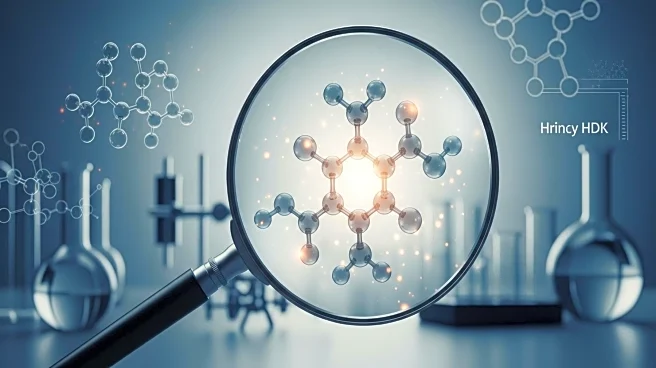What is the story about?
What's Happening?
Recent research has delved into the mechanisms of polymyxins, a class of antibiotics used to target Gram-negative bacteria. These antibiotics disrupt bacterial membranes by targeting lipopolysaccharides (LPSs). The study, conducted by Edwards, Hoogenboom, and colleagues, reveals that metabolic inactivity in bacteria confers tolerance against polymyxin antibiotics. The researchers propose a model where polymyxin-mediated killing occurs in metabolically active bacterial cells. Their findings indicate that polymyxin B triggers LPS release through ATP-dependent synthesis and transport, which is crucial for the antibiotic's entry into the periplasm and subsequent inner membrane disruption, leading to bacterial cell death.
Why It's Important?
Understanding the mechanisms behind antibiotic efficacy is crucial for developing more effective treatments against bacterial infections, particularly those caused by Gram-negative bacteria. These bacteria are often resistant to many antibiotics, posing significant challenges in healthcare. The study's insights into the role of metabolic activity in antibiotic tolerance could lead to improved strategies for combating bacterial resistance. By targeting the metabolic processes that enable bacterial survival, new treatments could be developed to enhance the effectiveness of existing antibiotics, potentially reducing the prevalence of antibiotic-resistant infections.
What's Next?
Further research is needed to explore the implications of these findings in clinical settings. Scientists may investigate how metabolic activity can be manipulated to increase the susceptibility of bacteria to polymyxins and other antibiotics. Additionally, the development of new antibiotics or adjuvant therapies that exploit these mechanisms could be pursued. Collaboration between researchers and pharmaceutical companies could accelerate the translation of these findings into practical applications, potentially leading to new treatment protocols for resistant bacterial infections.
Beyond the Headlines
The study highlights the complex interplay between bacterial metabolism and antibiotic efficacy, suggesting that metabolic pathways could be a target for future drug development. This approach may also prompt ethical discussions regarding the manipulation of bacterial metabolism and its potential impacts on microbial ecosystems. Long-term, these findings could influence the direction of antibiotic research, shifting focus towards metabolic interventions as a means to combat resistance.














